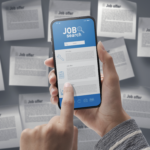In light of comments made at Davos during this year’s World Economic Forum, companies are beginning to understand that shareholder value is no longer just about short-term, quarterly results. The major business-leaders showpiece event raised debate as to whether employees and communities were as important stakeholders for businesses as shareholders were.
It is a radical rethinking of the dominant philosophy of corporate management, but this has arisen as the business community wakes up to the fact that squeezing employees to hit short term targets that placate shareholders, may in the long-run be counterproductive.
So why is raising the prospect of employee wellbeing and engagement a secret to better results in the long-term?? Employee motivation leads to better service and heightened productivity, leading to happier and better financials. Treat your employees right now, and companies can reap the financial benefits later. Two years ago, a Deloitte survey found just 12 per cent of top global executives thought they could play much of a role in educating and training their staff. Sharon Thorne, Deloitte’s global chair, says this year’s poll found more than 80 per cent claim to be creating a culture of life-long learning.
Training is Key to Employee-first Transformation
Investing in people – both their skills and wellbeing – also encourages innovation and productivity gains, resulting in long-term benefits.
Learning and development will be absolutely key to ensuring employee value and better relations with external audiences as well, for the following reasons.
Firstly, automation and AI are accelerating the pace at which job skills become redundant. This leaves companies with a choice – upskill team members or reduce headcount. The latter will look better on the annual report, but at what cost? Bringing in new people with the right skills in a tight labour market will always be more expensive than investing in reskilling. In addition, if your business premises become a metaphorical revolving door with people in and out holding their P45s, you have zero chance of building a sticky corporate culture – something that is imperative to creating happy, motivated employees who interact with customers and communities positively and are dedicated to the cause. Companies without a mission or narrative to which employees are invested will struggle in the long-term.
Secondly, new skills and learning is crucial to fostering a culture of productivity and innovation. Learning a new skill and feeling useful gives people purpose, direction and self-belief. It also helps improve their own cognitive diversity, enabling them to make connections between different fields of experience that lead to new ideas. Companies that produce more new ideas succeed over the long-term and peer-to-peer learning also fosters greater collaboration and innovation within a business.
First Though, Learning Must Be Transformed
Learning and development at work has traditionally held a terrible reputation. Whether it’s our actual jobs getting in the way from finding the time to learn, or the fact that many training programmes are still delivered via slide after slide in a dreary hotel function room. Many of us may still remember grainy VHS tapes played to a room of 30 people on a 15 inch TV screen. Wake up, the nightmare’s over! You no longer need to spend hundreds of pounds on an all-day conference to get the best training, nor do you need to measure it by attendance.
Like many things over the last decade or so, the way we consume information has moved on. Just look at how we consume the news. Social media platforms like Twitter, not even fifteen years old, has transformed how we deliver, view and comment on the news. Technology has also had a similar effect on learning and development, but do enough companies realise this? No.
Mobile-first, tailored experiences enable the user and the business to get the most out of learning. This approach will enable staff to do the training as and when they please, instead of signing their out-of-office for a working day to head to the next hotel conference. This also enables learning to coincide with work so that people are able to put it into practice immediately, drastically improving the chances of recall.
But what’s the correlation between accessible training opportunities and workplace happiness? It’s scientifically proven that happiness and learning now come hand in hand. Not only are we training our brain, and learning something new, this development makes us happier because we’re more confident in an area than before we started. Perhaps that’s why, despite our world being taken over by Fortnite and Call of Duty, Sudoko and Crosswords have remained in their rightful place within newspapers. We’re programmed to train our brain, whether it’s on the commute, at the workplace or with the Sunday papers. There is further social science behind this but what’s important here, is that companies begin to recognise our human thirst for testing our brains.
But wait, what about our shareholders?
You may argue that we’re now in an economic environment where companies are racing each other to the bottom. With this in mind, can companies afford to provide extensive learning programmes, at the sacrifice of profit margins? It doesn’t have to be either/or in this scenario. We often think short-term, how we’re performing on a quarterly basis, how much staff turnover did we see last month, what bonuses can we manage this year and the list goes on.
Of course, some financial pressures will always remain but with a longer-term vision, with employees at the heart of it, this will actually pay the true dividends. Whether it’s offering the best remote working infrastructures, employee benefits, or learning opportunities, companies need to put their staff first to ensure a happy successful business. Again there is a strong correlation between a happy workforce and a successful business.
Rightly so, we’re taking more notice of wellbeing both outside and inside the office. If companies can address this and support their staff with a personal approach, then they will prosper financially. Ultimately, putting employees first will result in the financials pleasing your shareholders.
This is for life
We’ve addressed why learning is one component to a happy workforce and also why that happiness translates to business success. But another consideration is this long-term approach introduced earlier. At the time of writing in the UK, workers will be granted a state pension at the age of 65. It’s set to rise to 68 within the next two decades but that’s only the beginning. The fact of the matter is, we’re working longer and we’re having more careers within our lifetime.
We need to ensure staff have the opportunity to continually learn through multiple job-cycles to ensure everyone has the chance to succeed and that no one is left behind when careers drastically change and job roles evolve.
Our new decade began with business leaders discovering the value of prioritising and listening to workers. How this decade ends for those leaders could be drastically different. Now is the time to not chase work to please senior leadership or to overstretch your team to secure more revenue. It’s time to look in, assess what skills are required for the next ten years, and ensure you have the infrastructure and the platforms for your employees to learn and develop at a critical time for society and business. Lifelong learning is not a new concept, but it’s one that companies must recognise and act on now, to ensure they’re fully prepared for the future. If not, we face grave socio-economic challenges which technology won’t wait for.









